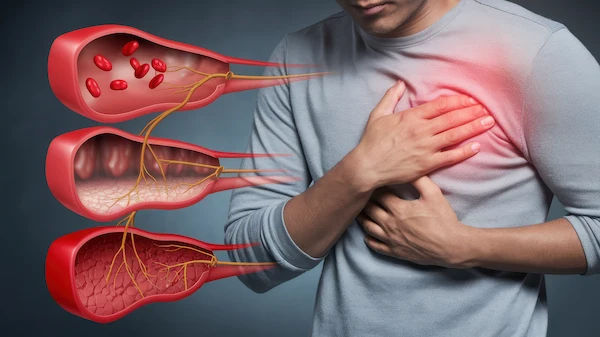Symptoms of Elevated Creatinine Levels
Know the causes and symptoms of creatinine levels and how to lower the creatinine levels naturally.

Written by Dr. Vasanthasree Nair
Reviewed by Dr. Rohinipriyanka Pondugula MBBS
Last updated on 28th Jul, 2025

Introduction
If you’ve recently had a blood test and your doctor mentioned that your creatinine levels are high, you might be wondering what this means for your health. Elevated creatinine levels can be a sign that your kidneys aren’t functioning as well as they should. But don’t worry—this article will help you understand what creatinine is, why it matters, and what you can do about it.
What Is Creatinine?
Creatinine is a waste product that forms when your muscles break down a substance called creatine, which helps produce energy for muscle contractions. Your kidneys filter creatinine out of your blood and remove it from your body through urine.
When your kidneys are healthy, they efficiently clear creatinine. However, if your kidney function is impaired, creatinine can build up in your blood, leading to elevated creatinine levels.
Symptoms of Elevated Creatinine Levels
High creatinine levels themselves don’t always cause noticeable symptoms, but they often indicate an underlying kidney problem. Some common signs to watch for include:
1. Fatigue and Weakness
When kidneys aren’t filtering waste properly, toxins build up in your blood, making you feel tired and sluggish.
2. Swelling (Oedema)
Kidneys help regulate fluid balance. If they’re not working well, you may notice swelling in your feet, ankles, legs, or face.
3. Changes in Urination
Decreased urine output or foamy urine (due to protein leakage) can be a sign of kidney trouble.
Some people experience frequent urination at night (nocturia).
4. Shortness of Breath
Excess fluid buildup due to poor kidney function can affect your lungs, making it harder to breathe.
5. Nausea and Vomiting
A buildup of waste products can cause nausea, loss of appetite, or even vomiting.
6. Dry, Itchy Skin
Kidney dysfunction can lead to mineral imbalances, causing skin irritation.
7. High Blood Pressure
Kidneys help regulate blood pressure. If they’re not working well, your blood pressure may rise.
If you experience any of these symptoms, especially if they persist, it’s important to consult a doctor for further evaluation.
What Causes High Creatinine Levels?
Several factors can contribute to elevated creatinine, including:
1. Kidney Disease or Damage
Conditions like chronic kidney disease (CKD), acute kidney injury (AKI), or infections can impair kidney function.
2. Dehydration
Not drinking enough water can temporarily increase creatinine levels.
3. High Protein Diet
Eating too much protein (especially red meat) can raise creatinine levels.
4. Intense Exercise
Heavy workouts can temporarily increase muscle breakdown, leading to higher creatinine.
5. Certain Medications
Some drugs (like NSAIDs, antibiotics, or blood pressure medications) can affect kidney function.
6. Diabetes or High Blood Pressure
These conditions can damage the kidneys over time, leading to elevated creatinine.
How to Lower Creatinine Levels Naturally
If your creatinine levels are slightly high, lifestyle changes can help improve kidney function:
1. Stay Hydrated
Drinking enough water helps the kidneys flush out toxins. Aim for 8-10 glasses daily (unless your doctor advises otherwise).
2. Eat a Kidney-Friendly Diet
- Reduce sodium, avoid processed foods, pickles, and canned soups.
- Limit protein (especially red meat, eggs, and dairy).
- Increase fibre like fruits, vegetables, and whole grains.
3. Avoid NSAIDs (Painkillers)
Medications like ibuprofen can harm the kidneys. Use them sparingly.
4. Exercise Moderately
Avoid excessively high-intensity workouts that increase muscle breakdown.
5. Manage Underlying Conditions
Keep diabetes and high blood pressure under control with medication and diet.
When to See a Doctor
If your creatinine levels remain high despite lifestyle changes, or if you experience severe symptoms like:
- Severe swelling
- Difficulty breathing
- Persistent nausea/vomiting
- Very low urine output
Final Thoughts
Elevated creatinine levels can be a warning sign of kidney trouble, but with the right care, you can manage it effectively. Pay attention to symptoms, stay hydrated, eat well, and seek medical advice when needed. Your kidneys play a vital role in keeping you healthy, so take good care of them!

.webp)

.webp)
